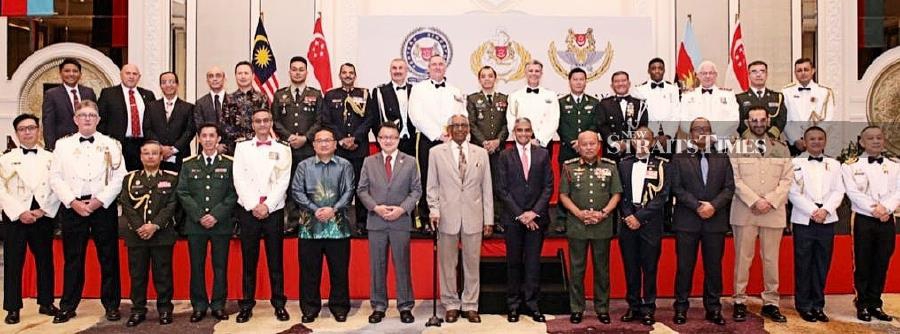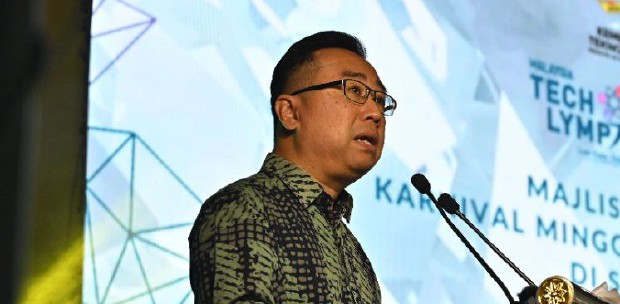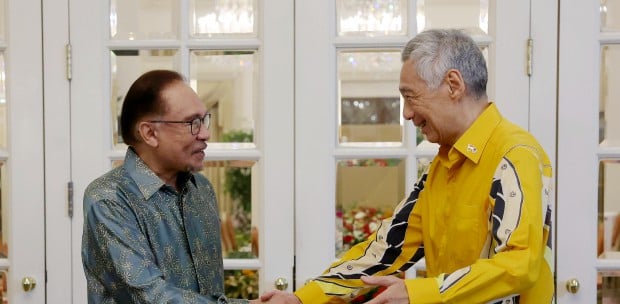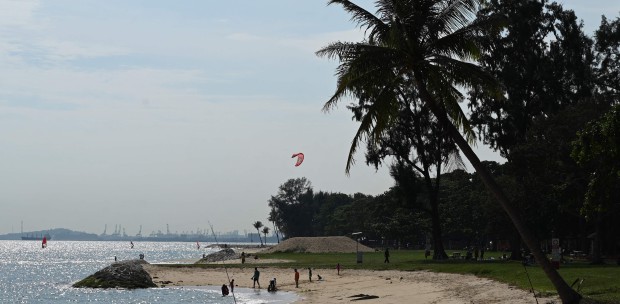KUALA LUMPUR: Singapore and Malaysia are always ready to develop practical solutions to address their common security concerns.
Singapore defence adviser Colonel Low Chung Guan said they had a long history of working together and that the Singapore armed forces was grateful to its Malaysian counterpart for the strong partnership they shared.
"Right from the early days before Singapore and Malaysia gained independence, our forefathers already fought shoulder to shoulder in the defence of Malaya, which included both Peninsular Malaysia and Singapore.
"Post-independence, while both our armed forces were still in their nascent stages of development, we established the Five-Power Defence Arrangements (FPDA).
"The FPDA celebrated its 50th anniversary last year, creatively done within the global Covid-19 pandemic restrictions," Low said at the 57th Singapore Armed Forces Day celebration here.
Guest-of-honour was Malaysian armed forces headquarters chief-of-staff Lieutenant-General Datuk Zakaria Yadi.
Present were Singapore High Commissioner Vanu Gopala Menon, Low's wife Renee May Nabi, Malaysian armed forces defence intelligence staff division director-general Lieutenant-General Datuk Ahmad Norihan Jalal, former deputy defence minister Liew Chin Tong, the country's first Royal Malaysian Navy chief Rear-Admiral (Rtd) Tan Sri K. Thanabalasingam, the defence attaches and advisers of the Military Attache Corps.
Low said at the turn of the century when Singapore and Malaysia encountered increased piracy threats in the busy Straits of Malacca international waterway, they managed to put together the Malacca Straits Patrol to effectively address the issue.
"Over the last two years, while Covid-19 might have caused many countries to shut their borders, we did not allow it to stop our practical cooperation.
"Our leaders continued to keep in touch with one another, and we found ingenious ways to continue to support each other.
"This was not only in the medical front against Covid-19 but also across the Defence Ministry and the armed forces.
"We are confident that this spirit of close practical cooperation will put us in good stead to face the myriad of new security challenges ahead," said Low.
He reminisced how the officers and men of both countries were here today, standing on the shoulders of giants, who had cleared the path before them.
"We have to thank our past leaders and commanders for always taking time to engage and build new bridges for the future."
On Covid-19, Low said it had certainly disrupted all their lives over the last two years.
"It has demanded most militaries to step forward in one way or another, to support our national-level fight against the virus.
"We have to learn and adapt quickly to 'fight in a new environment', not with the traditional guns and missiles, which we in the armed forces are more familiar with.
"But we have to do so in order to continue to fulfil our broader mission to defend and protect our people."
Besides Covid-19, Low added that the impact of climate change and the fallout from the Russia-Ukraine conflict had led to food security concerns.
"Supply chain disruptions, cyber, information and misinformation campaigns are just some of the new security challenges that have been added to our plate today.
"And these are above the traditional and non-traditional security threats such as terrorism that have not gone away.
"As such, we have to continue to adapt and find new ways to address these new demands with the resources we have." Singapore, he added, was a small country with only 5.5 million people, of whom only 3.5 million were citizens.






